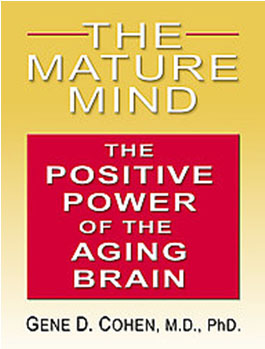 The Mature Mind: The Positive Power of the Aging Brain by Gene D. Cohen notes that it’s commonly accepted that:
The Mature Mind: The Positive Power of the Aging Brain by Gene D. Cohen notes that it’s commonly accepted that:
- The brain doesn’t grow new cells.
- “Older adults cannot learn” like young people can.
- “Connections between neurons are relatively fixed” during a person’s lifetime.
- Intelligence is a result of “how many neurons” a person has and “how fast those neurons work.”
Cohen asserts that “these ‘facts’ are wrong.” In contrast, he posits: “The brain is more resilient, adaptable, and capable than we long thought …” He notes that:
The human brain “is continually resculpting itself in response to experience and learning.”
- New brain cells “form throughout life.”
- A person’s “emotional circuitry matures and becomes more balanced with age.”
- The two hemispheres of the brain “are more equally used by older adults.”
Now that we know that people can change, it’s fair to ask whether employers can change too—and view remote, part-time, virtual and other non-traditional work arrangements as productive.

